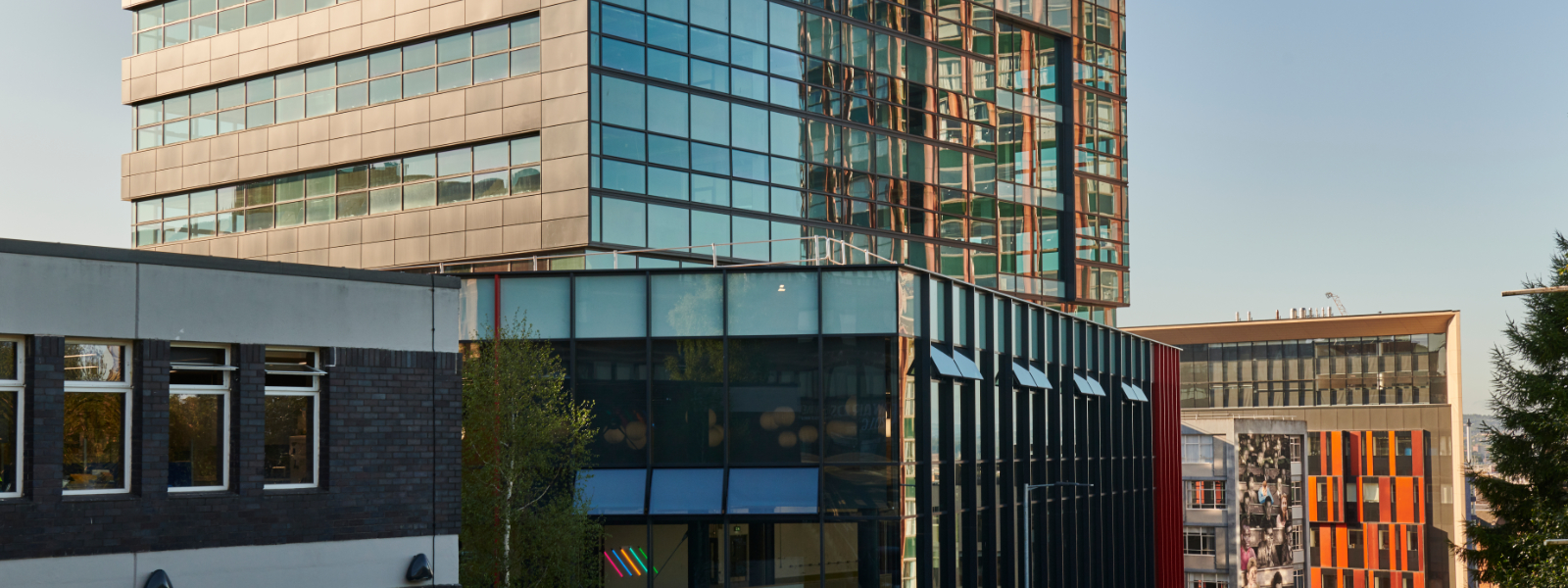_(1).jpg)
Stephanie is a student from the BSc Speech & Language Pathology programme at the University of Strathclyde
Tell us a little bit about your background...
I'm a mature student and came to Speech and Language Therapy after a major career change. I previously worked in finance for over ten years, but during the COVID-19 pandemic, I took time to reflect and reassess what I really wanted to do with my life. I'd always been interested in communication and working with people, and I wanted a career where I could make a real difference. That's what led me to Speech and Language Therapy.
Before starting the degree, I completed the Pre-entry Access course at Strathclyde, which was a brilliant stepping stone. It helped me refresh my academic skills and gave me a solid foundation to build on.
I also love being involved in student life. Last year, I co-founded a society at the university for all students to learn and strengthen their British Sign Language skills. It's been a great way to bring people together and build a stronger sense of community.
What drew you towards undertaking this degree?
I've always been fascinated by how communication works, and what happens when it doesn't. This passion led me to choose a caring profession where I could make a meaningful difference. Speech and Language Therapy appealed to me because it combines science, communication, and the opportunity to work with people of all ages.
Tell us about the format of the programme. What is a typical week like?
The programme is a mix of lectures, tutorials, clinical skills workshops, and placements. Each week we are building both our academic knowledge and practical skills. In the earlier years, we focus on areas like linguistics, phonetics, anatomy, and the variety of difficulties people may come to therapy with. As the course progresses, there's more focus on clinical placements, which take place in a range of NHS and community settings. There's also time built in for independent study and group work.
Tell us a little bit about your experience on placement...
Placements have been one of the most rewarding aspects of the course. I've had the opportunity to work with children, adults, and multidisciplinary teams in schools, hospitals, and community clinics. These experiences have helped me grow in confidence and cement my passion for the profession.
Alongside my studies, I also joined the Royal College of Speech and Language Therapists (RCSLT) as a student member. Being involved in the wider professional community has given me access to a wealth of resources, events, and networking opportunities - it's been invaluable for my development as a future therapist.
What is the academic support at Strathclyde like?
The academic support has been excellent. The staff are approachable, knowledgeable, and genuinely want you to succeed. As a mature student, I sometimes worried about returning to education, but I've always felt supported - both academically and personally. There are also regular tutorials, placement supervision, and opportunities for one-to-one guidance throughout the course.
The support at Strathclyde goes beyond just the course staff. The library team have been incredibly helpful throughout my degree - whether it's finding resources, using referencing tools, or getting support with research skills, they're always approachable and knowledgeable. I've also had a really positive experience with the Disability and Wellbeing Service. They offer tailored guidance, adjustments, and check-ins, which really helped me feel confident and supporting during more demanding times.
What are the facilities at Strathclyde like?
Strathclyde has a great campus in the heart of Glasgow, and the facilities are excellent. The library has everything you need for studying and research and the Strathclyde Sport centre is a fantastic facility and a real asset to the university. It's a great place to unwind, stay active and look after your wellbeing alongside your studies. The Strath Union helps build a strong sense of community, especially through its societies, sports clubs and support services, which helps make the university experience really positive.
What are your hopes for the future?
I'm hoping to work as a qualified Speech and Language Therapist in the NHS after graduating. I'd also love to continue being involved with professional bodies like the RCSLT and contribute to research, advocacy, or student mentorship in the future.
What advice would you give to someone considering applying for this course?
Go for it! Whether you're coming straight from school or, like me, changing career later in life, this degree offers a fantastic opportunity to learn, grow, and make a real difference in people's lives. If you're unsure, try to get some experience through volunteering, shadowing or attending events to help you decide.
I'd also encourage anyone who's had a break from education to consider the Pre-entry Access course - it really helped me get back into the mindset of studying. And once you're here, get involved! Joining or starting a society, attending RCSLT events, and connecting with your peers all make the experience richer and more rewarding.
